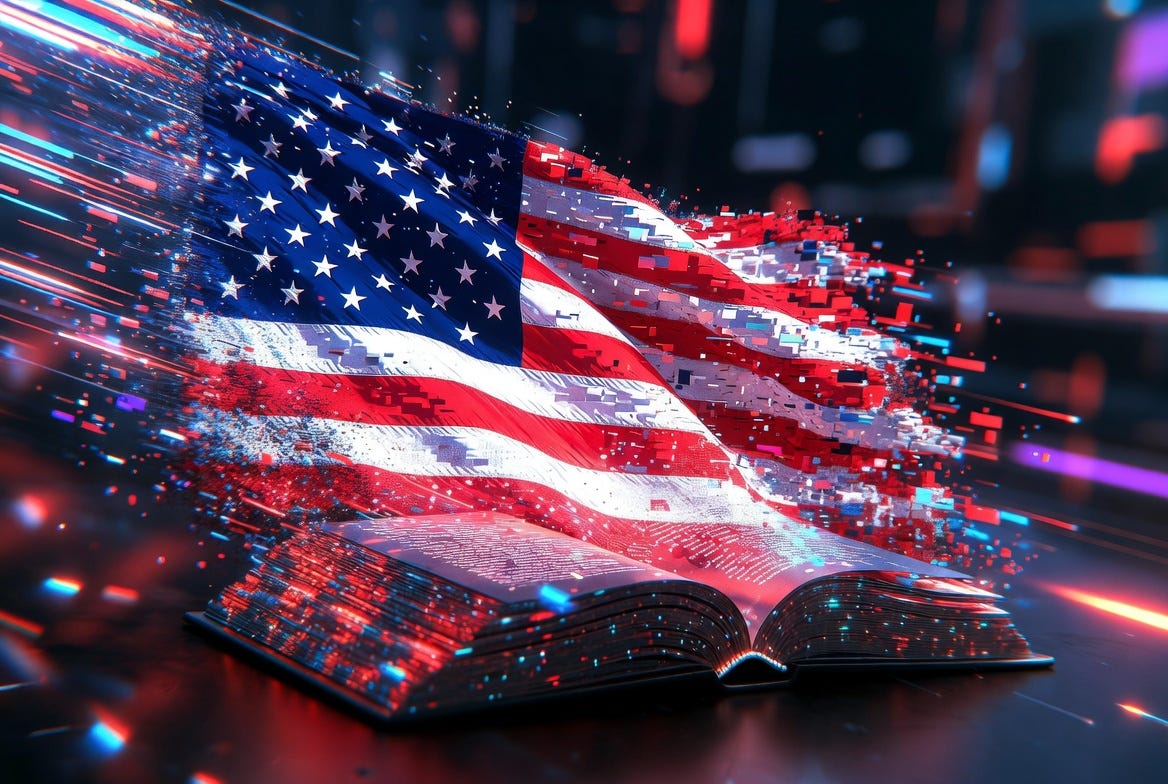The American publishing industry, both traditional and independent, is in a tailspin that’s been spinning for years, and artificial intelligence is the latest gust shoving it toward the ground. You’ve got legacy houses churning out celebrity memoirs and safe bets while indie authors drown in a sea of digital noise on platforms like Amazon. Add AI to the mix, and suddenly human writers are staring at a landscape where machines crank out “books” faster than you can say “bestseller list,” leaving flesh-and-blood creators wondering if it’s even worth picking up the pen. It’s a grim picture, one that’s not just about sales slumps but the erosion of what makes writing human: creativity, grit, and that irreplaceable spark of originality.
Start with traditional publishing, the old guard that’s supposed to be the gatekeeper of quality. The numbers don’t lie: according to the Association of American Publishers’ StatShot report, overall industry revenues dipped 1.3% in June 2025 alone, with a year-to-date decline of 1.7%. Trade revenues, which cover the bulk of fiction and non-fiction, fell 2.8% that month to $675.5 million. The print book market as a whole slid 1.6% in the first half of 2025 compared to the prior year. There are about 3,131 book publishing businesses in the US, growing at a meager CAGR of 1.1% from 2020 to 2025, but that’s hardly a boom—it’s stagnation in a sector battered by consolidation. The Big Five (now essentially Big Four after mergers) dominate, squeezing out midlist authors with paltry advances that haven’t kept pace with inflation. Remember when a debut novelist could snag a six-figure deal? Those days are relics; now it’s more like scraping by on $5,000-$10,000 if you’re lucky, while the houses bet big on TikTok sensations or political tell-alls that sell on name recognition alone.
The rot runs deeper. Gatekeeping has morphed into a DEI checklist gauntlet, where manuscripts get rejected not for quality but for not ticking the right boxes, leaving talented writers sidelined. Marketing budgets skew toward proven hits, leaving unknowns to fend for themselves in a discoverability desert. And let’s not forget the post-COVID hangover: supply chain snarls, rising paper costs, and a readership that’s increasingly distracted by short-form content on apps. Publishers are facing what one insider calls a “perfect storm” of challenges in 2025, including declining ad revenues and shifting consumer habits toward audiobooks and ebooks, but even those segments aren’t growing fast enough to offset the losses. It’s a far cry from the golden era when books were cultural events; now, they’re just another commodity in a bloated market.
Flip to independent publishing, and the picture’s no rosier—it’s just a different flavor of chaos. Self-publishing exploded thanks to platforms like Kindle Direct Publishing (KDP), democratizing access but flooding the gates. In 2025, the self-pub scene is oversaturated, with millions of titles vying for eyeballs on Amazon, where algorithms bury most books under a pile of similar covers. Royalties are slim—70% on ebooks priced $2.99-$9.99 sounds great until you factor in the cut-throat competition and the need to spend on ads just to get seen. Discoverability? Forget it; without a massive social media following or paid promo, your opus sinks like a stone. Indie authors grind through newsletters, ARC teams, and beta readers, only to see sales trickle in the double digits. The market’s grown, sure, but so has the noise—genres like romance and fantasy are packed with formulaic series, making it tough for originals to break through.
Enter AI, the disruptor that’s turning this mess into a full-blown crisis. Generative tools like ChatGPT and Grok are churning out “books” at warp speed, flooding marketplaces and disincentivizing human writers who can’t compete with the volume or cost. Why slave over a manuscript for months when an AI can spit out a 50,000-word novel in hours? The Authors Guild calls AI a “serious threat to the writing profession,” pointing to model training on pirated books without compensation, leading to a flood of derivative content. Scammy AI-generated imitations and summaries are rampant on Amazon, with authors finding knockoffs of their work popping up overnight. In early 2024, the platform was already struggling to stem the tide, limiting self-published ebooks to three per day, but by 2025, the problem’s worsened—thousands of new AI titles daily, mostly nonsense summaries or regurgitated public domain works.
Take the mushrooming of AI books on bestseller lists: In 2023, Kindle Unlimited’s YA romance charts were stuffed with AI gibberish, and it’s only escalated. Bad actors use tools to generate sham content—study guides, travel books, even “biographies” that deceive buyers. Amazon’s flooded with these, making it harder for real authors to stand out; one report notes the marketplace is “incubators for AI-generated books” via GPT and MidJourney. Human writers feel the pinch—why pour your soul into a draft when AI can mimic styles, impersonate voices, and undercut prices? It’s not just quantity; AI lacks emotional depth, producing formulaic slop that still sells to undiscerning readers. An open letter from writers to publishers in 2025 warns that AI will devalue original stories, reducing them to data patterns.
This disincentivization hits hard. Aspiring authors see the math: traditional paths offer slim odds and low pay, indie routes demand marketing savvy most lack, and now AI bots are the competition. Fiction writers fret over AI’s lack of true creativity—brainstorming aids are fine, but full manuscripts? It feels like cheating the craft. Ethical nightmares abound: scams where AI fakes authors’ work, or publishers using it for editing without credit, eroding trust. Some see silver linings—AI as a tool for productivity or opportunity in a tough market—but for many, it’s a replacement threat. Why grind through revisions when a prompt yields a “book” ready for upload? It’s hollowing out the soul of publishing, turning art into algorithm.
The fallout’s cultural too. Books were once beacons of human insight; now, they’re commoditized slush. Traditional houses chase trends, indies fight visibility, and AI floods the rest. Readers lose out on genuine voices, buried under bot-generated dreck. If the industry doesn’t adapt—maybe with AI detection, better royalties, or valuing human curation—it risks becoming a ghost town of echoes.
Ultimately, this dire state is a symptom of broader decay: tech overreach gutting creative fields. Good things—like the painstaking craft of human writing—don’t last forever if we let machines take the reins. In fantasy, we fight for legacy; in sci-fi, we question progress. Publishing needs that fight now.
SARJ OUT






That's not a bad take on the current state of play. In terms of the AI slop being dished up though, you have to keep in mind that this is a pretty new problem. I don't know what trad publishers are going to do - possibly embrace it and get rid of those pesky authors who think publishing is about them. Who knows? But Amazon has started to act. When you look into the algorithm changes that dropped in May, you'll see that many of them relate to spotting organic activity. What's genuinely popular. This is designed as push back against the masses of AI drivel.